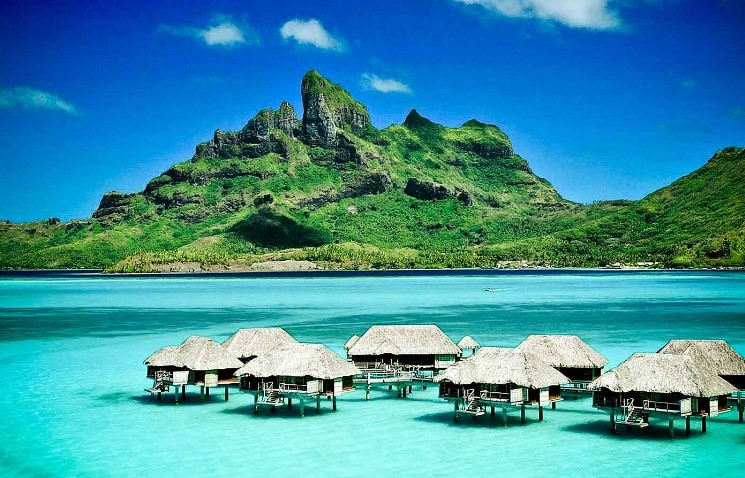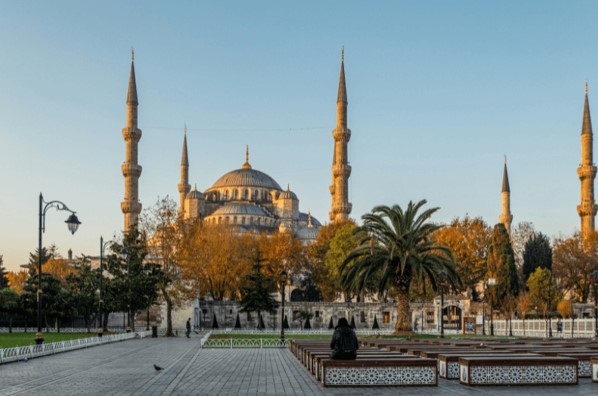
Safe Travels?
Commentary by Chitown Kev
I’ve always loved to travel.
I enjoy seeing different places and learning about different people, even though I’ve only been as far out of the country as Toronto, Canada; it only takes a little bit of observation to notice the similarities and differences, even within specific cities and locales.
Frequently when I travel, I enjoy just…wandering place to place simply because it looks or sounds…curious.
I haven’t had the money to do all the traveling that I would like; I’m working on that.
I was born after the Civil Rights Act of 1964, so my family never ever had a reason to consult anything like The Negro Motorist Green Book, the travel guide that was published from 1936 to 1967 with the purpose of guiding Black motorists to safe businesses, salons, barbershops, and the like during the Jim Crow era.
The Green Book, of course, was the basis of the 2018 Oscar-winning film Green Book starring Mahershala Ali and Viggo Mortensen about an Italian-American driver driving and escorting an African-American classical pianist through the segregated South in the 1960’s.
On one hand, that would have been an interesting journey. On the other hand, how dare anyone or any circumstances dictate where I can and cannot go.
In 2017, one of the more glaring signals of an American cultural regression into a JIm Crow-like culture was the issuance of a travel advisory by the Missouri NAACP for all people of color traveling in the state of Missouri, the first travel advisory of its kind ever.
The civil rights organization announced the travel advisory last week, warning “African American travelers, visitors and Missourians to pay special attention and exercise extreme caution when traveling throughout the state given the series of questionable, race-based incidents occurring statewide recently.”
The president of the group’s St. Louis County chapter initially responded with a statement calling on national and state leaders to rescind the advisory. But days later, the chapter joined the protest.
Nimrod Chapel Jr., president of the Missouri state conference of the NAACP, said he understands how some people might have mistaken the travel advisory as a suggestion to abandon travel to the state entirely, especially with Republican officials and the business community vigorously defending the new law that the protest targets.
But Chapel said the NAACP is not asking people to stay away from the Show Me State but, rather, calling attention to “Jim Crow-style legislation” and policing policies that threaten the rights of all people, not just African Americans.
Now, in 2022, Crystal Egli and Parker McMullen Bushman have used The Negro Motorist Green Book as the inspiration for the Inclusive Guide.
Egli brought the idea of what would become the Inclusive Guide to McMullen Bushman in 2019. The original concept had been more of a blog format—Egli would list places she had been and felt comfortable. Eventually, they decided the project would benefit from incorporating the insights of others.
“Your experience can be greatly affected depending on what’s going on in your life, so we decided if we really wanted to understand how a place is and what it is for multiple people, we needed to find some way to allow lots of people to give their thoughts about particular places,” McMullen Bushman said. “We put those ideas together and moved forward with a user-review website.”
Much like user-review site Yelp, Inclusive Guide allows users to rate businesses. However, each business’s scores are generated with a focus on whether patrons feel safe, welcomed, and celebrated.
Though The Green Book served as inspiration, Inclusive Guide differs in one major way: It doesn’t just focus on the experience of Black people; it includes anyone who may face discrimination or feel unsafe in certain situations, ranging from other persons of color to those in the LBGTQ community to those with disabilities.
“The systems that affect Black people often are mirrored in other forms of oppression, and so we thought it was important this was something everyone could use,” McMullen Bushman said.
Hmph.
I’m not as naive as I pretend to be sometimes.
America has never quite been a country of the type that poet Walt Whitman called “the open road” for me; even in my wandering, I’ve always had to keep an eye on where I was going and what I was doing there.
Even while being raised in Detroit, Michigan— a place where no official Jim Crow was on the books— my grandfather would defiantly take me places to eat in the 1970’s that did not serve Black people in the generation before mine; he always kept an eye on the waitperson and grill cook just in case they want to spit in the food that was to be served to us.
Even when I was in Tallahassee, Florida in college in 1985, I knew the shopkeepers that did not want me in the store within seconds…and I got the hell out of there with no incident.
So, in a sense, there has always been a need for travel guides like The Green Book and/or The Inclusive Guide. Even without guides such as these, word of mouth recommendations have always been available if you asked.
Now, in 2022, greater social acceptance of formally outcast groups has been met by a backlash that seeks not only to rescind the relatively recent attainment of civil rights of those groups but also to demonize and, eventually, to excise the presence of these formerly outcast groups out of American public life.
So much so that in 2022 in the United States of America, something like the Inclusive Guide for travel on the “open road” of America is necessary not simply to enjoy oneself but, perhaps, for survival.
~~~~~~~~~~~~~~~~~~~~~~~~~~~~~~~~~~~~~~~~~~~~~~~
NEWS ROUND UP BY DOPPER0189, BLACK KOS MANAGING EDITOR
~~~~~~~~~~~~~~~~~~~~~~~~~~~~~~~~~~~~~~~~~
~~~~~~~~~~~~~~~~~~~~~~~~~~~~~~~~~~~~~~~~~~~~~~~~~~
~~~~~~~~~~~~~~~~~~~~~~~~~~~~~~~~~~~~~~~~~~~~~~~~~
Marvel fans, rejoice! The trailer for the highly anticipated Black Panther sequel, “Wakanda Forever” just debuted at San Diego’s Comic Con, and the tears are already flowing. Following the tragic passing of Chadwick Boseman in 2020 after a private battle with cancer, movie goers have had mixed emotions about the continuation of the franchise. But with the promise of a literal new life being born into the storyline, the grieving will find solace in the legacy of T’Challa.
The trailer features a version of “No Woman No Cry,” performed by Tems, which then feeds into snippets of Kendrick Lamar’s “We Gon’ Be Alright.” The composition feels haunting and inspiring all at once as we see familiar faces come into view. Danai Gurira, Lupita Nyong’o, Martin Freeman, Angela Bassett and Winston Duke will all be reprising their roles, as well as Letitia Wright whose character, Shuri is named as a potential successor to her brother T’Challa.
“It’s a blessing, we’ve grown so much. It’s an honor to bring this movie to you and honor big brother,” said Wright in a statement.
A few new faces making their introduction to Wakanda are Tenoch Huerta, Dominique Thorne, as well as Michaela Coel playing the role of Aneka.
Said Dominique Thorne, “I think we all know that the impact that Black Panther had on the world is indelible, it’s indescribable, it’s physical, emotional, mental and most of all spiritual. So to be a part of it returning to the screen and highlighting these beautiful stories from this very necessary perspective, it’s a blessing.”
.
~~~~~~~~~~~~~~~~~~~~~~~~~~~~~~~~~~~~~~~~~~~~~~~~~

Standard theories of global progress continue to be largely limited to raw extraction. Foreign Policy: Ghana’s ‘Success’ Exposes the West’s Toxic Development Model
~~~~~~~~~~~~~~~~~~~~~~~~~~~~~~~~~~~~~~~~~~~~~~~~~
At first glance, an item of business news that crossed my transom one morning this week seemed like a clear economic win from Africa: Ghana, which enjoys a reputation as one of the continent’s most successful nations, had signed a $3.2 billion contract with an international consortium to rehabilitate a defunct railway line between its western port city of Takoradi and its second-largest city, Kumasi, in the nation’s interior.
Putting the 210-mile route back into service would allow Ghana to deliver the minerals and commodities it produces to international markets more easily.Before the line became inoperable in 2006, worn out by years of heavy use and inadequate maintenance, it had been used to transport raw manganese,bauxite, and unprocessed cocoa, earning export income in dollars intended to power the country’s development. Read quickly, the contract sounded like unadulterated progress for a country that is seeking to broaden prosperity for its fast-growing population.
But as someone who just this month had just driven the entire breadth of Ghana, from its western border with Ivory Coast to its eastern frontier with Togo, and who has been visiting the country for decades, routine news items like these, so positive-seeming on their surface, raise deep and disquieting questions that resonate well beyond the territory of this modest-sized country and implicate the entire African continent and its relationship to the international economy

~~~~~~~~~~~~~~~~~~~~~~~~~~~~~~~~~~~~~~~~~~~~~~~~~~
The continent is the only region in the world not suffering from a slowdown in venture capital. Economist: African startups are raising unprecedented amounts. What next?
~~~~~~~~~~~~~~~~~~~~~~~~~~~~~~~~~~~~~~~~~~~~~~~~~
When Maurizio Caio, a fund manager with about 20 years of experience in tech, began raising money in 2015 for an African startup fund, investors were hesitant. “They said to pick either Africa or venture capital (vc),” says Mr Caio, who jointly runs tlcom Capital, a fund focused on Africa. “There is an Africa risk and a vc risk,” was the message. “Don’t combine the two.”
Such attitudes are rarer these days. Last year 604 African startups raised a total of $5.2bn, according to the African Private Equity and Venture Capital Association (avca), an industry group. This was more than the total invested in the seven preceding years (see chart). Though just a fraction of the $600bn invested globally by vc funds, it was a sign of changing attitudes towards a continent that lacks capital and needs more businesses. It is a shift that should endure, despite the global economic downturn. Five of Africa’s seven “unicorns” (startups valued at more than $1bn) won their horns last year.
American investors led the charge, with 357 involved in deals last year, compared with 268 in total in 2014-20. These included such firms as Andreessen Horowitz, Tiger Global and Ribbit Capital, and billionaires like Jeff Bezos and Jack Dorsey, the founders of Amazon and Twitter respectively. “We’ve broken into the mainstream of global venture capital,” says Daniel Yu, the founder of Wasoko, an e-commerce startup that raised $125m in March. He thinks the success of e-commerce firms such as Flipkart in India and MercadoLibre in Latin America has spurred investors to seek similar opportunities in Africa.
Capital may soon be harder to come by. “Fundraising will be much tougher,” says Marlon Chigwende of Admaius Capital Partners, a fund based in Rwanda. “Africa ends up being one of the last places to look and one of the first places that will get pulled back.” That may end up being the case, but there is not yet a slowdown. Startups in Africa raised more in the first half of this year than in the same period last year, according to data collated by Max Cuvellier, who publishes a newsletter about African vc, making it the only part of the world where such investment is still growing.

~~~~~~~~~~~~~~~~~~~~~~~~~~~~~~~~~~~~~~~~~~~~~~~~~

Locals and climate activists battle against coastal development and privatization of public beaches as luxury condos proliferate. The Guardian: ‘The beaches belong to the people’: inside Puerto Rico’s anti-gentrification protests
~~~~~~~~~~~~~~~~~~~~~~~~~~~~~~~~~~~~~~~~~~~~~~~~~
Climate activists in Rincón, Puerto Rico, celebrated the Fourth of July by demolishing part of a construction at the beach that has been the symbol of resistance against coastal development on the island.
Wearing swimsuits and holding tight to their sledgehammers, hundreds of people flocked to Los Almendros beach in early July to take apart a structure that would have been an infinity pool just a few yards away from the coast. The protests against the structure, which a condominium started building last year, continues to grow and activists are still expressing their concern over the construction’s effect on the area.
The protests in Rincón are part of a larger battle spearheaded by environmental activists against coastal development and privatization of public beaches in Puerto Rico. After Hurricane María hit the island in 2017, communities faced elevated erosion and more infrastructure along the coast. The proliferation of housing developments and hotels in places with a high volume of tourists, like Rincón, have also presented a challenge to locals trying to access the beach.
In the case of the protests around the condominium’s beachside pool, the law is on the citizens’ side: a lower court in Puerto Rico ruled in favor of demolishing the structure earlier this year, but the condominium owners have repeatedly appealed the court’s decision. The move has led to a resurgence of protests in Los Almendros and the revival of Camp Carey, named after a hawksbill turtle.
For Alaihia Lloret, a tent in Los Almendros beach has become her second home as she protests against coastal development. Lloret, 19, started camping out in Los Almendros beach with dozens of other people last year after a condominium began construction. When a turtle nested in the area, protests erupted, forcing the condominium to stop the reconstruction of the infinity pool last summer, which was destroyed by the hurricane in 2017.

~~~~~~~~~~~~~~~~~~~~~~~~~~~~~~~~~~~~~~~~~~~~~~~~~~
~~~~~~~~~~~~~~~~~~~~~~~~~~~~~~~~~~~~~~~~~~~~~~~~~
~~~~~~~~~~~~~~~~~~~~~~~~~~~~~~~~~~~~~~~~~~~~~~~~~
~~~~~~~~~~~~~~~~~~~~~~~~~~~~~~~~~~~~~~~~~~~~~~~~~
~~~~~~~~~~~~~~~~~~~~~~~~~~~~~~~~~~~~~~~





More Stories
Complete Guide To Exuma’s Hidden Gem
Birkenstock Sandals Are on Major Sale
Complete Guide To Austria’s Beautiful Capital City